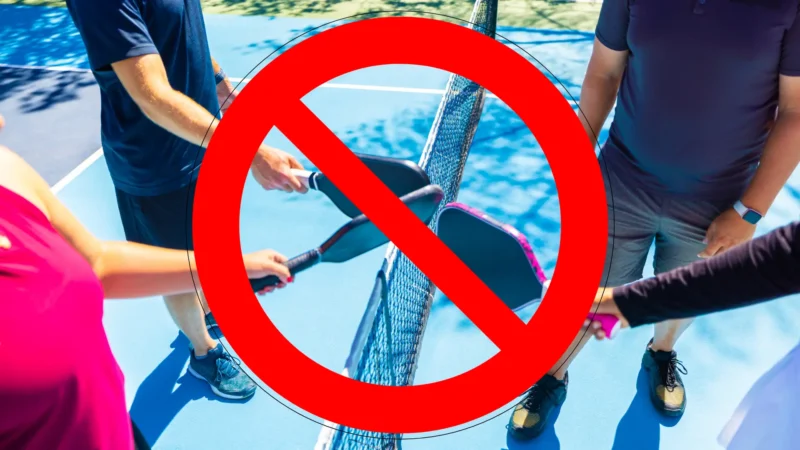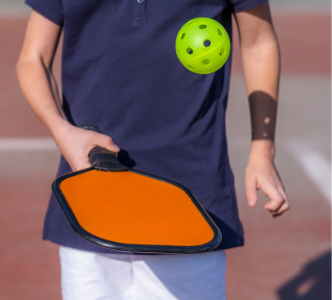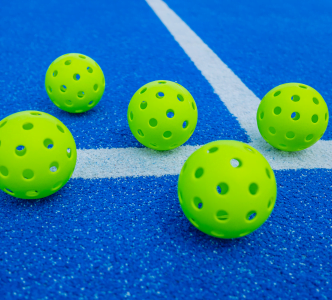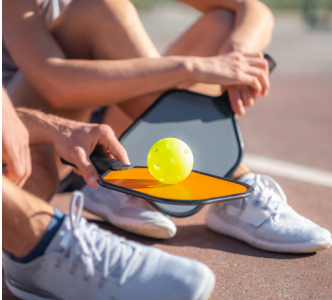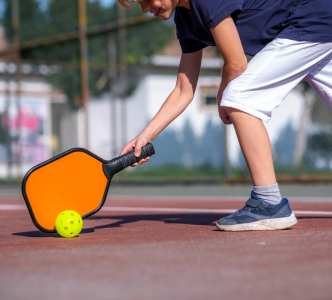Pickleball mixes tennis, badminton, and ping-pong and lots of people are playing it. But, some are asking if we should stop playing or even ban it. but what do you think, is banning pickleball the right solution? It’s a big question because many people love pickleball, even though it has some issues. Let’s look at both sides and talk about it together!
The Rise of Pickleball
Pickleball began as a backyard pastime over 50 years ago, but now it’s taken the world by storm! Many pickleball enthusiasts have started clubs and revel in the sport. Picture a sport that’s a breeze to pick up, incredibly enjoyable, and perfect for bonding with friends and family. That’s pickleball in a nutshell.
Here’s the average graph that shows the pickleball growth and popularity.
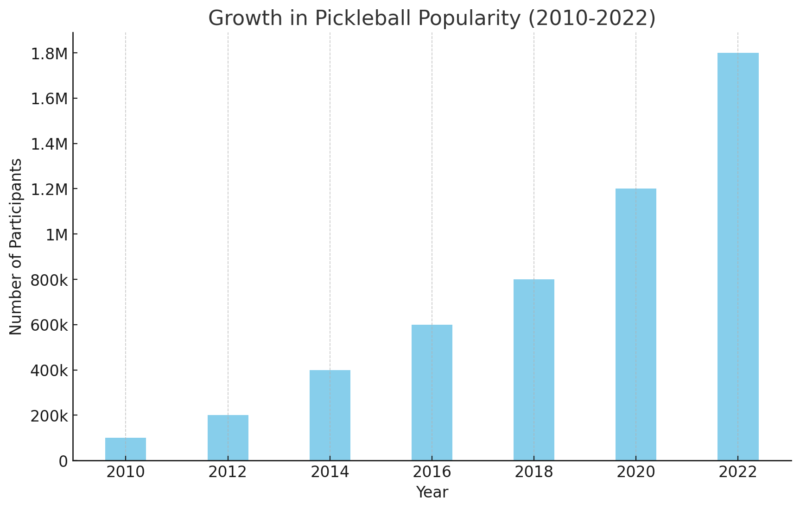
If you are a pickleball enthusiast and want to start a pickleball club, we have a complete step-by-step guide about Starting a pickleball club.
Pickleball appeals to everyone – kids, parents, and even grandparents are flocking to the courts. Its ease of play and minimal equipment requirements are drawing crowds. Plus, the introduction of glow-in-the-dark pickleball in recent years shows it’s the fastest-growing sport, not just a fleeting trend.
The biggest social activity of this game is Pickleball travel adventures and it has become a favorite for many families, offering a fantastic way to stay active and forge new friendships. People passionate about this sport are joining leagues, tournaments, and even social gatherings centered around pickleball.
Courts are emerging everywhere, from quaint towns to bustling cities, highlighting the universal adoration for this game. Witnessing such a simple game evolve into a beloved pastime for millions is truly remarkable.
Should Pickleball be Banned?
No, outright banning pickleball isn’t the wisest move. Despite its challenges, like pickleball noise complaints and public space usage issues, there are effective sound reduction techniques and strategies for recreational area management that can mitigate these concerns. This approach maintains the game’s benefits while catering to the community’s needs.
Arguments for Banning Pickleball
The debate around whether pickleball should be banned is fueled by several factors. First on the list is the noise. The sound of pickleball paddles striking the ball can be quite loud, especially in tranquil neighbourhoods.
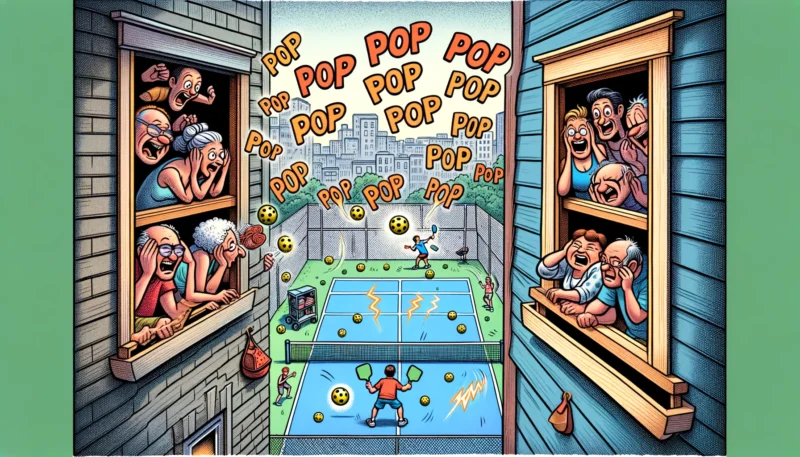
Imagine seeking some peace at home, only to be met with a constant “pop, pop, pop” from dawn to dusk. It can be overwhelming for some.
Then, there’s the issue of safety. The eagerness to play can lead to court overcrowding, raising the risk of collisions and falls, particularly in spaces not designed to accommodate large numbers of players.
Community disruption is another significant concern. The conversion of parks or tennis courts into pickleball venues doesn’t sit well with everyone. Those who previously enjoyed these spaces for different activities might feel sidelined.
Lastly, the environmental impact of constructing new courts or repurposing existing ones can threaten local green areas and wildlife.
While pickleball offers heaps of fun, these issues have led some to question if the game is worth the potential hassle it brings.
Counterarguments Against Banning Pickleball
Many people also saying pickleball sucks, But hold on! There’s another side to this pickleball story. Let’s consider why many believe banning it isn’t the way.
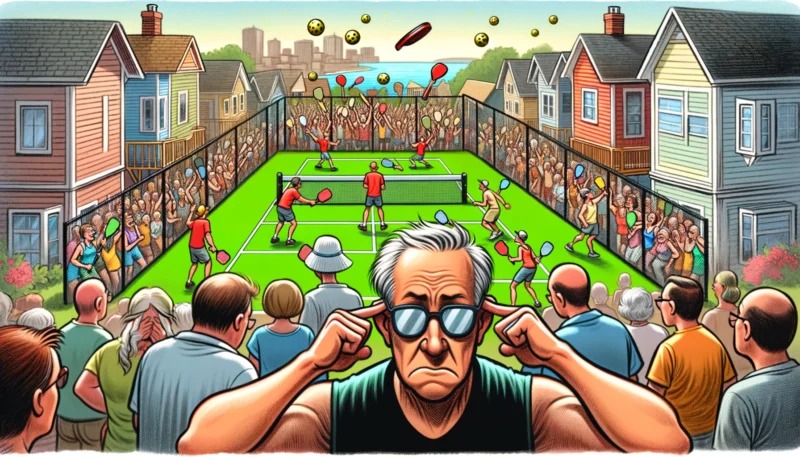
Firstly, pickleball offers numerous health benefits, including serving as a low-impact sport that promotes cardiovascular exercise and fosters social benefits. For the elderly, it’s an excellent way to stay active without the intensity of more demanding sports.
From an economic standpoint, pickleball can significantly benefit communities. Tournaments and new courts can boost local business support and contribute to sports tourism, creating jobs and providing everyone with a new recreational outlet.
It’s also beneficial for introverts because it allows socializing in pickleball with people and building confidence and friends.
And those concerns? Many believe they can be addressed without resorting to a ban. For instance, employing quiet paddles and balls can lessen noise, while strategic planning can ensure there are enough courts to reduce safety risks and court overcrowding.
Community engagement is crucial as well. Through open community dialogue and public meetings on sports, pickleball players and those impacted by the courts can collaborate to find mutually beneficial solutions.
This way, pickleball can act as a unifying force, bringing communities together rather than driving a wedge between them.
Alternatives to Banning Pickleball
Rather than outright banning pickleball, there are smarter approaches to address the issues it raises. Let’s look at some alternatives that could keep everyone content.
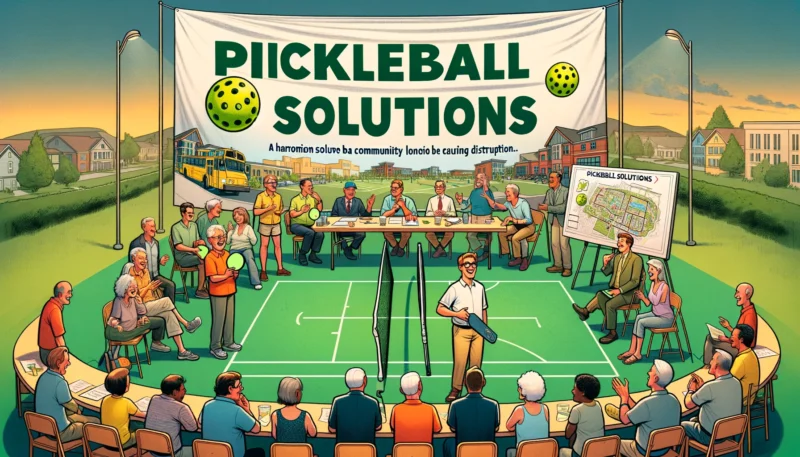
Quieting Down the Game
Advancements in adaptive sports equipment and technology in sports have introduced special quiet paddles and balls designed to reduce noise. Additionally, installing noise barriers around courts can help maintain community noise levels within acceptable limits.
Setting Play Times and Places
Implementing scheduled play times and dedicating certain areas for pickleball play can help manage public space usage effectively. This ensures other community parks and spaces remain versatile for various activities, fostering harmonious recreational area management.
Building More Courts
To alleviate court overcrowding, constructing additional courts can be a viable solution. Strategically placed new courts can also minimize disruption in residential areas, addressing resident concerns about pickleball noise complaints and public space usage.
Community Solutions
At the heart of resolving pickleball-related issues is community engagement. Through stakeholder meetings, feedback mechanisms, and inclusive decision-making, there’s potential for pickleball and other activities to coexist. Effective conflict resolution strategies and community dialogue can pave the way for shared spaces that cater to everyone’s needs.
Conclusion
The question of whether pickleball should be banned is now more nuanced. While the sport does present challenges, outright banning it overlooks the potential for alternative solutions and the importance of balancing the game’s sport popularity growth with community well-being.
By considering noise reduction, scheduling play, and fostering community dialogue, we can address concerns without sacrificing the health benefits of pickleball and its role in promoting community engagement and economic benefits.
FAQ’s
Why do people not like pickleball?
Some residents have pickleball noise complaints, especially in quieter neighbourhoods. The constant “pop” of the ball can be disruptive, raising community noise levels
Do people play pickleball?
Yes, pickleball has become extremely popular across all age groups. It’s one of the fastest-growing sports in the U.S., with millions playing in community centers, parks, and retirement communities.
Why is pickleball a growing sport?
Pickleball is accessible, easy to learn, and can be played by people of all ages, making it a popular family and community activity. Its socializing nature and low-impact exercise appeal contribute to its growth.
Is pickleball a noisy sport?
Pickleball can be noisier than other racket sports due to the hard paddle and plastic ball. The sound generated by the game is a common complaint among those living near courts.
Is pickleball bad for your body?
Pickleball is generally considered a low-impact, safe sport for most people. It offers cardiovascular and mobility benefits. However, like any physical activity, there’s a risk of injury without proper warm-up and technique.

